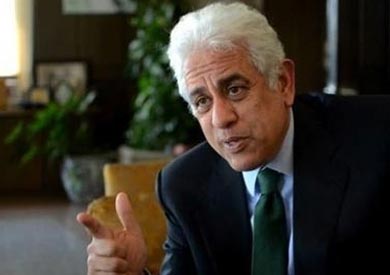In the midst of the madness of extremism and violence and cutting necks in the name of Islam, I found myself thinking about the birthday of our master Muhammad in a different way, thinking of him as a beautiful human being, of good morals, before he was a messenger and prophet who represented the heart and pillar of the Islamic religion in his words and actions.
His wisdom in spreading his message with kindness, exhortation, affection and mercy, even at the moment of his victory on the day of the conquest of Mecca.
And his awareness of his humanity when he tells his supporters to discuss him, and even correct his decisions in war, is a message to resort to specialization when necessary.
And when he agreed to the Treaty of Hudaybiyah, despite the objection of his closest advisors not to mention that he is the Messenger of God in the preamble, and when he approved the rites of Hajj as they were before Islam, and gave “Abu Sufyan,” the leader of the infidels, his place and value, he was an intelligent politician, sees the future and does not sink at the moment. It unites people, not divides them.
His strength in declaring that God does not change his covenants with human beings when the sun eclipsed during his burial of his son “Abraham” is a human lesson of the first degree not to exploit opportunities falsely to advance his message, no matter what the circumstances are.
His love for his daughter, and his objection to his daughter’s husband when he wanted to marry her, was a humanitarian par excellence.
My master and beloved Muhammad was a man of beautiful morals, merciful to those around him, wise in his words, keeping his vows, and he combined a caring father, a wonderful husband, a successful leader, an intelligent politician, a beloved prophet, a philosopher, and a human being.
He is the only one who completed and documented his message and lived the word of God as an example to be emulated.
On the anniversary of your birth, I close my eyes and send you a message of love, thanks, gratitude and respect, for you are the ideal among God’s creation.
 Dr. Hossam Badrawi Official Website
Dr. Hossam Badrawi Official Website


